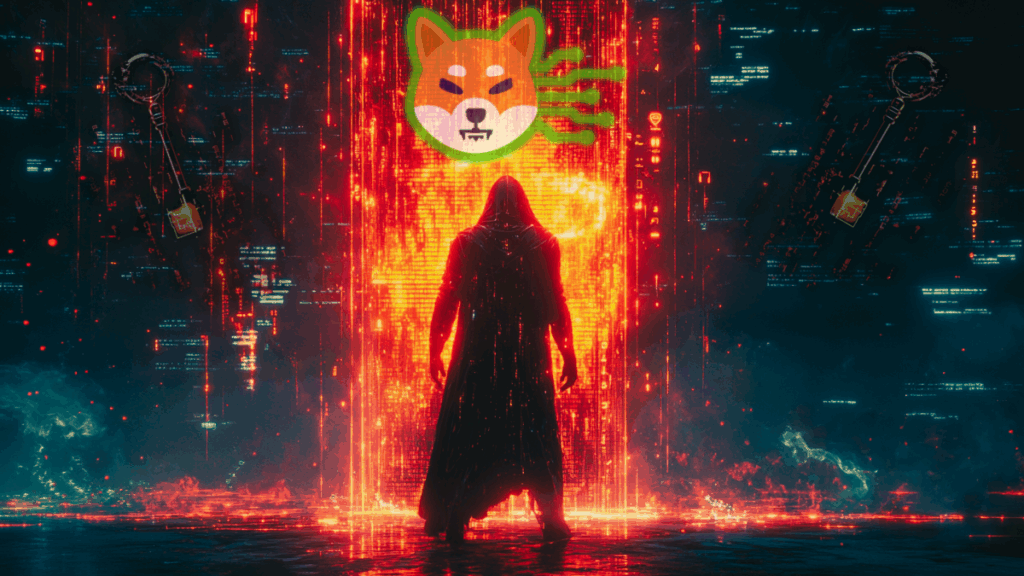Welcome to the world of Web3 — the next-level internet that’s shaking things up by putting power back in your hands, thanks to blockchain magic. Now, you might be thinking, “Web3? That sounds like tech jargon made for crypto geeks and coding wizards.” And hey, you’re not alone. A lot of people assume Web3 is some futuristic playground only for experts or hardcore crypto traders.
Key Points
- Welcome to the world of Web3 — the next-level internet that’s shaking things up by putting power back in your hands, thanks to blockchain magic
- That sounds like tech jargon made for crypto geeks and coding wizards
- A lot of people assume Web3 is some futuristic playground only for experts or hardcore crypto traders
But here’s the secret: Web3 isn’t just for the tech-savvy elite. It’s already sneaking into your daily life in surprising ways — quietly working behind the scenes, changing how we connect, play, shop, and even protect our online identities. Ready to discover how Web3 is closer than you think? Let’s dive in!
1. Social Media and Content Ownership
Ever posted a fire meme, a viral video, or a heartfelt rant—only to realize you’re basically giving it away for free? On traditional platforms, you use the service, but they own the stage. Your content lives there, but it doesn’t really belong to you.
Web3 flips the script
With Web3, social media isn’t just a place to post — it’s a place to own. These platforms are built on blockchain, which means your content can be tied to your digital identity and even exist as an NFT (non-fungible token). Translation: you can prove it’s yours and even sell it if you want.
What makes it different?
- You own your posts. Not the platform, not an algorithm — you.
- You earn the rewards. Your viral video? Monetized by you, not by ad sales you never see.
- You decide the rules. Want to take your followers and content to a new app? With decentralized platforms, that’s actually possible.
Real-world examples
- Lens Protocol & Farcaster: Web3 social networks that let you control your identity and data
- NFT-based content: Artists and creators minting their tweets, poems, videos, and art as NFTs—and selling them directly to fans
In short: with Web3 social, you’re not just feeding the machine—you’re building your own digital empire, one post at a time.
2. Digital Identity and Privacy
Let’s face it—every time you create yet another account with yet another password, a little part of your soul sighs. And don’t even get us started on those “forgot password?” loops that make you question your entire existence.
Now imagine this: logging into websites without needing a password. No “What’s your first pet’s name?” No “Pick all the traffic lights.” Just a secure, private digital ID that you fully control. That’s the magic Web3 is bringing to the table.
What is a Web3 digital identity, anyway?
In simple terms, it’s like your online passport—but instead of being managed by a tech giant, it’s powered by you (and a little help from blockchain). You decide what info to share, where to share it, and when to keep things private.
Why it matters:
- No more one-password-fits-all. Your identity can live on the blockchain, encrypted and secure, without having to reuse weak logins across platforms.
- You’re in control. Want to prove you’re over 18 without sharing your birthdate and full name? With Web3 identity tools, that’s actually possible.
- Less data = less risk. If companies don’t have your personal info, they can’t leak it.
Real-world examples
- Sign-in with Ethereum (SIWE): A way to log into apps using your crypto wallet instead of a username/password combo
- Decentralized identity platforms like ENS and Unstoppable Domains: You own your name, and it doubles as your login, crypto address, and more
Web3 is building a future where your digital identity isn’t a trail of breadcrumbs for advertisers—it’s a locked vault, and you hold the keys.
3. Online Gaming and Virtual Goods
Remember grinding for that ultra-rare sword or skin in a game, only to realize you don’t actually own it? One server glitch, game update, or account ban—and poof, it’s gone. Sad times. But guess what? Web3 is flipping the script in the gaming world, too.
Related: Crypto Titans Bunker Down Now: Vitalik’s Austerity Vow, Binance $1B Bitcoin Shield
In-game items you actually own
With Web3, those hard-earned loot drops, character skins, and magic potions can be tokenized as NFTs. That means they live on the blockchain—not just inside a single game—and you can trade, sell, or even lend them out just like you would a rare collector’s item.
What makes it game-changing (literally):
- True ownership: If it’s yours, it’s really yours—no take-backs from game studios.
- Real-world value: Sell rare items on open marketplaces and earn real crypto.
- Interoperability: Some Web3 games are exploring the idea of using the same item across multiple games. Yes, your fire sword could make a cameo in a whole other fantasy world.
Real-world examples
- Axie Infinity & Gods Unchained: Web3 games where players truly own their characters and cards
- Immutable & Ronin: Blockchains built specifically to support NFT-based gaming economies
Gaming in Web3 isn’t just about winning—it’s about owning your journey. Your time, your skills, your loot? They’re finally worth something beyond the screen.
4. Supply Chain Transparency
Ever wondered where your avocado really came from? Or if that “eco-friendly” t-shirt actually lived a sustainable life before landing in your closet? Welcome to the part of Web3 that’s less flashy—but surprisingly powerful: supply chain transparency.
From seed to shelf—now with receipts
With Web3 and blockchain tech, every step a product takes—from raw materials to shipping to the store—is recorded in a tamper-proof, digital log. It’s like giving your groceries or gadgets their own personal travel diary.
Why it’s a big deal:
- No more guesswork. You can see exactly where your food, clothes, or tech came from—and whether it was ethically sourced or not.
- Built-in accountability. Brands can’t fake sustainability claims when the whole supply chain is publicly trackable.
- Fewer shady surprises. Blockchain tracking can help catch issues early—like food contamination or fake luxury items—before they reach your hands.
Real-world examples
- Provenance & IBM Food Trust: Platforms using blockchain to track everything from fish to fashion
- Everledger: Helping trace diamonds and luxury goods to prevent fraud
Web3 might not be checking your fridge for expired cheese, but it is helping build a world where you can trust what you buy. Because “know your source” is no longer just a farmer’s market slogan—it’s a blockchain-powered reality.
5. Music and Creative Rights
Let’s talk tunes. You know how your favorite indie artist drops a killer track, and then 80% of the money goes to record labels, streaming platforms, and everyone but the artist? Yeah—Web3 isn’t vibing with that system.
Enter the era of music freedom
Web3 is handing the mic back to the musicians. By using blockchain and NFTs, artists can sell their music directly to fans—no middlemen, no record label drama, no algorithm gatekeeping their spotlight.
Why this hits the right note:
- Artists get paid—really paid. When a musician drops a music NFT, fans buy it directly, and the artist gets most (if not all) of the profits.
- Fans become collectors. Buying a track means more than just streaming—it can come with perks like exclusive content, VIP access, or even royalty shares.
- Creative freedom unleashed. Without traditional industry pressure, artists can experiment and connect with their communities on their own terms.
Real-world examples
- Sound.xyz & Audius: Platforms that let artists release music as NFTs or on decentralized streaming services
- RAC, 3LAU, and Imogen Heap: Musicians who’ve used Web3 tools to empower their careers and redefine fan relationships
Web3 is remixing the music industry, turning passive listeners into active supporters—and making sure that when you vibe to a track, the artist actually feels the love (and the crypto).
6. Decentralized Finance (DeFi) in Everyday Spending
Money talk time—but don’t worry, this won’t feel like a boring trip to the bank. Because with Web3 and DeFi (short for Decentralized Finance), your money doesn’t need a suit-and-tie middleman to move, grow, or be useful.
So… what is DeFi, exactly?
Think of DeFi as the DIY version of banking. Instead of going through traditional banks or institutions, Web3 apps let you send money, earn interest, borrow funds, and even invest—directly with others, peer-to-peer. All powered by smart contracts on the blockchain. Translation: no closing hours, no paperwork, and no random “maintenance fees.”
Related: Privacy Confirmed: Advanced FHE Coming To All Shiba Inu Tokens
How DeFi sneaks into real life:
- Spending with crypto cards: Load crypto onto Web3-friendly cards and use them like a debit card at your favorite coffee shop.
- Earning interest on your savings: Platforms like Aave or Compound let you earn yield by lending out your crypto—kind of like a savings account, but without the bank.
- Getting a loan—instantly: Need quick cash without credit checks? Some DeFi platforms let you borrow by locking up your crypto as collateral.
- Tipping or splitting bills: Peer-to-peer crypto transfers make it easy to pay friends back instantly, across borders and without fees.
Real-world examples
- MetaMask + Visa cards: Let you use your crypto at millions of stores
- Aave, Compound, and Uniswap: DeFi platforms where your money works while you sleep
Web3’s DeFi revolution is all about cutting out the middlemen and giving you full control of your finances. Whether you’re saving, spending, or sending, it’s banking—but on your terms, not theirs.
7. Loyalty Programs and Rewards
You know those store loyalty points that mysteriously vanish or sit unused because you need exactly 10,000 more to get a free coffee? Yeah—Web3 is not here for that kind of nonsense.
Loyalty, but actually rewarding
In the world of Web3, loyalty programs are getting a major upgrade. Instead of being locked into one brand’s outdated system, you can earn blockchain-based rewards that are yours to keep, trade, or even sell. Imagine turning your favorite pizza joint’s points into airline miles—or cashing them out altogether.
Why this is a game-changer:
- Interchangeable points: Web3 lets you use your rewards across different platforms or brands. No more siloed systems.
- Tradable perks: Earned something cool? Sell it. Trade it. Gift it. That’s the beauty of tokenized rewards.
- Real value, not expiration dates: Because blockchain stores your rewards securely, they don’t mysteriously disappear after 90 days.
Real-world examples
- Starbucks Odyssey: A Web3 loyalty program that uses NFTs and blockchain to create unique member experiences
- Taco Bell x NFTs & digital tokens: Letting fans collect and interact with branded digital content that doubles as perks
So yeah, Web3 isn’t just reinventing the internet—it’s coming for your punch cards and point hoards, turning loyalty into something that’s finally worth more than a half-melted keychain.
Web3 Is Closer Than You Think
So, here’s the twist—Web3 isn’t just for crypto bros, hackers, or people who say “decentralized” five times before breakfast. It’s already quietly woven into your everyday life, from the way you scroll through social media to how you shop, stream music, play games, and even rack up reward points.
What looks like normal internet stuff—posting a meme, listening to a track, buying groceries—might actually be powered by Web3 under the hood. And the coolest part? It’s not about memorizing blockchain buzzwords or buying into hype. It’s about taking back control of your data, money, and online experiences.
The next time someone says “Web3 is the future,” you can smile and say, “It’s already here—and I’ve been using it all along.”
So go ahead. Explore, experiment, and start clicking around the new internet. Because Web3 isn’t just changing the web. It’s changing how you live online.












